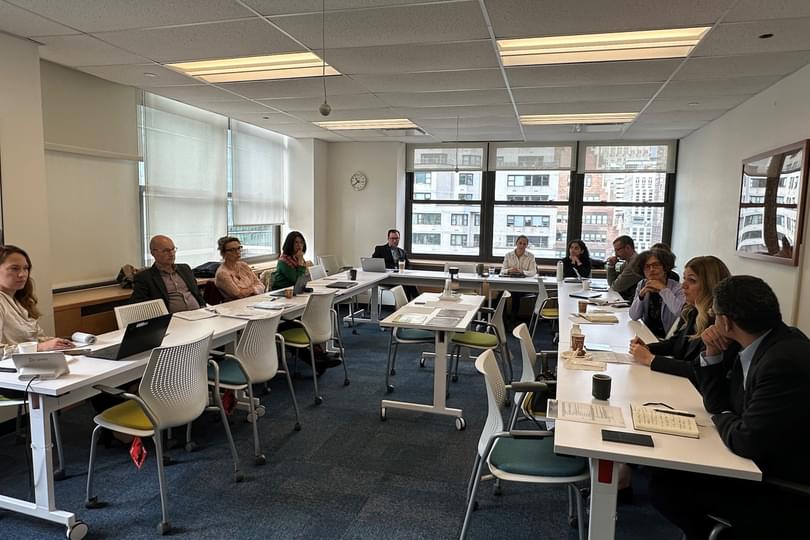
Recently the Oxford Martin Programme on Changing Global Orders partnered with the UNDP Human Development Report Office to hold one of a series of policy-focused workshops focusing on how international institutions respond to turbulent times. The workshops form part of the series of global consultations that work towards the 2023 Human Development Report.
The discussions in New York focused on how geopolitical tensions, global crisis, polarisation, and growing insecurities and distrust are effectively challenging the way we view and do development.
Speakers from the Oxford Martin Programme on Changing Global Orders, including Co-Directors Patricia Clavin and Andrew Thompson, contributed historical perspectives underscoring how the mandates and design of international institutions emerged from processes of contestation, highlighting the opportunities for improvement that come from this uncertainty.
Participants agreed that the current 21st century context of geopolitical upheaval is effectively challenging the role of international institutions, and asserted the need for balancing accountability and long-term objectives with flexibility, experimentation, and adaptiveness to continue to address existing and emerging global development challenges.
Professor Thompson said:
‘Looking at international organisations with an eye to their histories can provide a better idea of where they might be heading and how they might need to adapt (in many cases urgently).
‘History does not (and should not) aim to prescribe solutions, but to help different types of international organisation, including those in the UN family, to think through their own responses to the common challenges they are facing.’
Pedro Conceição, Director of the Human Development Report UNDP, added:
‘Meetings such as these are a critical part of the human development report journey from research to publication. History — and the humanities more broadly — are important because they contribute to the new type of space we are trying to create at UNDP — a space that allows for a broader and richer exchange with academia.
‘Many of the problems the world is facing in the early 21st century have deep historical roots. To understand them we therefore have to dig into their past. But more than that, there is the question of path dependency: the consequences of past decisions for how we think and act in the present, and for the range of options that are open to us when wrestling with contemporary challenges.’
Professor Clavin will now be contributing a spotlight article to the 2023 Report on ‘The human toll of mismanaging interdependencies: Insights from national and international history’, and Andrew Thompson will be writing on ‘Geopolitics and the Early History of United Nations: Friend or Foe?’. The Human Development Report, which is published annually, has an extensive influence on the development debate worldwide.